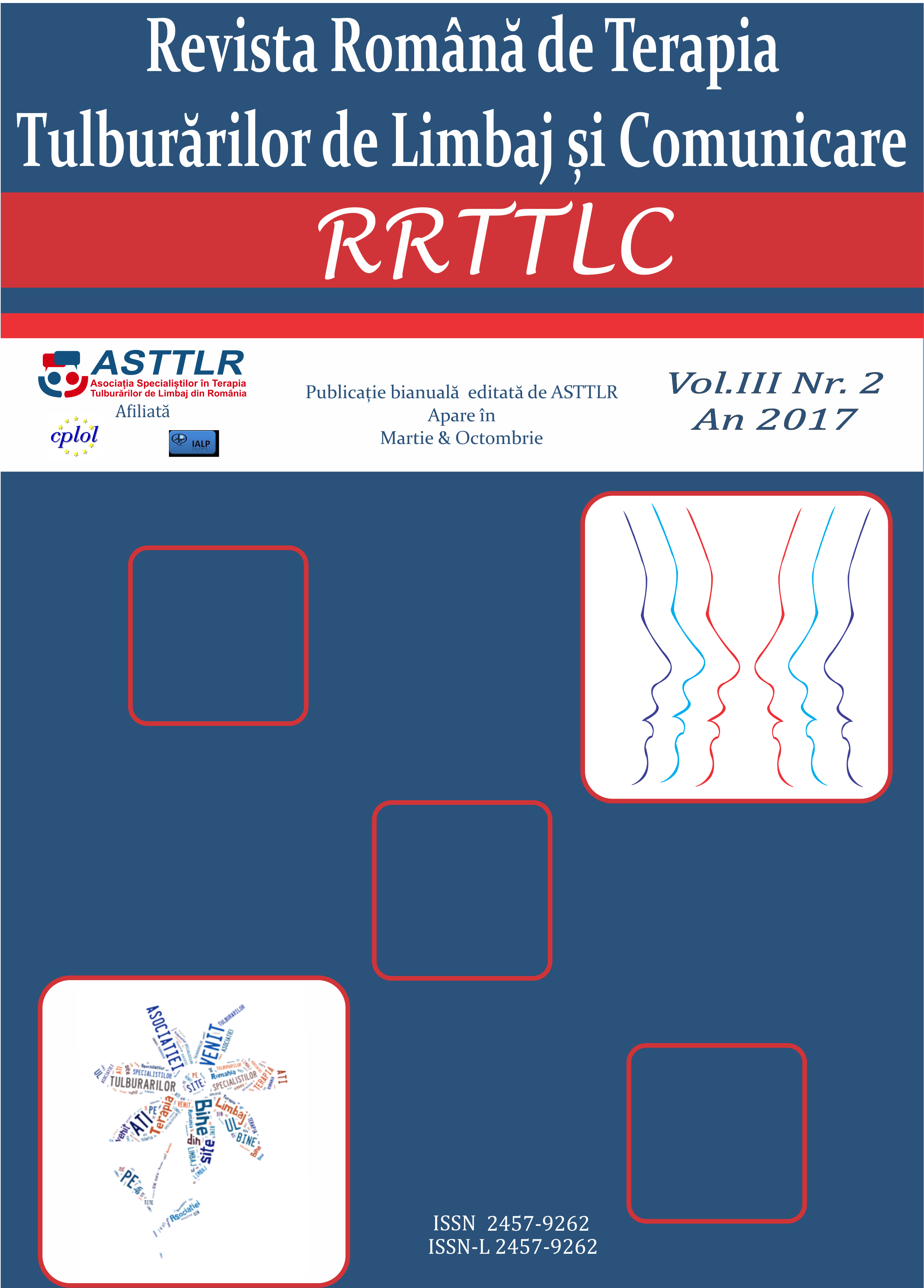Dezvoltarea deprinderilor de scris-citit prin metoda Meixner în contextul dizabilității intelectuale
Developing reading and reading skills through the Meixner method in the context of intellectual disability
Author(s): Nona Bădescu-FetcheSubject(s): Syntax, Inclusive Education / Inclusion
Published by: Asociația Specialiștilor în Terapia Tulburărilor de Limbaj din România
Keywords: reading; writing; intellectual disability; Meixner method; intervention; learning disabilities; case study;
Summary/Abstract: In this paper, we will be overlooking the complex process of reading and writing in intellectually disabled students and the development of these processes through the use of the Meixner method of intervention.Knowing that learning reading and writing is directly dependent on the development of speech, spatial temporal orientation as well as perception and the processes of attention and memory, along with, as stated in DSM-5th edition, the association of these disorders to learning disorders (non-dependent on intellectual disability), we can easily see the imperative need to use intervention methods, as is Meixner, to correct and enhance language development; Language development, or the lack of development, to be more precise is in fact, one of the primary predictors of reading and writing impairments in students that have intellectual disabilities, thus seen in: a poor vocabulary, slow, difficult reading rhythms, replacing, omitting or adding certain letters or syllables. This, has various and tremendous impacts in all areas of life, if the student does not receive the proper care and specialized intervention as early as possible (early intervention).In the present case study we will notice how a young female student, with intellectual disability, delayed expressive language acquisition and mixed instrumental disorders, along with reading – writing disorder benefits from a Meixner intervention, achieving impressive results, coming to aid in her difficulty, improving the present disorders in reading – writing / language development, instrumental disorder, having achieved a more active vocabulary, better abilities of focusing on tasks, having remarkable results even in some behavioral aspects (classroom integration, social integration, social abilities, social communication).
Journal: Revista Română de Terapia Tulburărilor de Limbaj şi Comunicare
- Issue Year: III/2017
- Issue No: 2
- Page Range: 93-101
- Page Count: 9
- Language: English, Romanian

